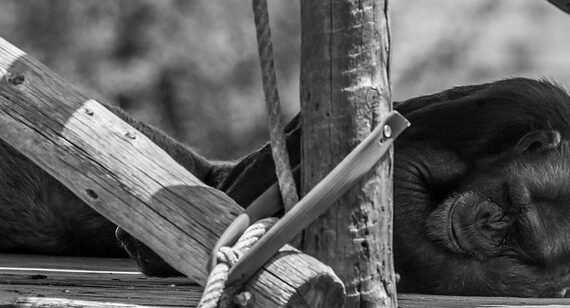
Does a bad night also affect the chimpanzees’ next day?
Ensuring proper sleep is essential for the health of all animals, including chimpanzees. Many studies have demonstrated that sleep plays a crucial role in physical and behavioral regulation, and sleep disruptions may cause negative consequences for both. This study made at MONA explores how environmental conditions and nocturnal disturbances affect the sleep and daytime behavior of sanctuary-housed chimpanzees, respectively.
the resu
The results of our new research have already been published in the international journal Animals.
Ideal sleep patterns and the consequences of not achieving enough quality sleep have been extensively studied in humans. Sleep deprivation, insufficient sleep, and sleep fragmentation have been linked to poor health and have been demonstrated to lead to a lack of attention, reduced concentration, reduced motor functions, impairment of emotion regulation as well as the development of diseases, depression, and morbidity, hence negatively impacting an individual’s wellbeing. Although far less studied, sleep is suggested to be an equally crucial component for the health and wellbeing of non-human primates and other animals as well
Chimpanzee sleep
Our results indicate that indoor temperature and humidity indeed influence the chimpanzee’s nocturnal activity. Furthermore, sleep fragmentation and intensity of nocturnal events significantly influenced the following day’s behavior. After nights marked by frequent and/or intense sleep disruptions, higher levels of inactivity, and abnormal and self-directed behaviors were observed, and chimpanzees spent more time on affiliative interactions and in social proximity.
These findings highlight the importance of controlling factors influencing nocturnal sleep quality. Furthermore, we demonstrated that economic audio recording devices used to monitor nocturnal activity, provide insights into the chimpanzee’s behavior and wellbeing.
You can read the full article in Animals






